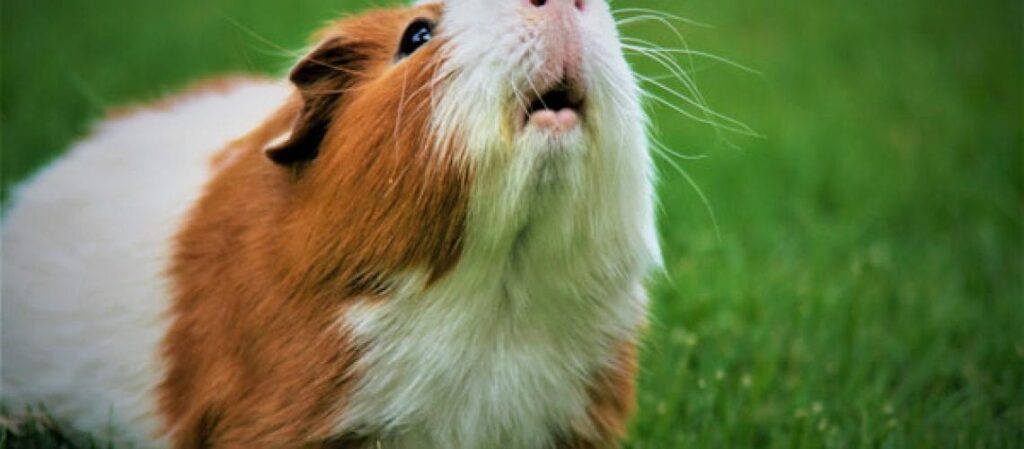Guinea pigs are small mammals that are mild-mannered and fairly easy to care for. In captivity, their lifespan ranges from 4 to 8 years. These cute little critters are very social and talkative! They rarely bite or scratch but are easily stressed.
Diet
A healthy diet for guinea pigs includes large amounts of grass hay, such as timothy, brome, and Bermuda grass. This is important as the grazing action aids in digestion and prevents their teeth from growing too long. Fruits and vegetables high in vitamin C or a vitamin C supplement are important because guinea pigs cannot produce their own supply. Similar to rabbits, guinea pigs under 6 months old should have alfalfa-based pellets. When they reach 6 months of age, they should be transitioned to timothy-based pellets. The transition should be made slowly to prevent upsetting the GI tract. Mixed diets that contain dried fruit, vegetables, grain, and seeds should be avoided since they contain sugar and carbohydrates that can upset guinea pigs’ stomachs. You should monitor your guinea pig’s appetite to make sure they are eating regularly. If guinea pigs go too long without eating, they can develop gastrointestinal stasis and become very ill.
Habitat
A plastic, metal, or wire cage with a solid floor that is well ventilated is recommended to prevent injuries to the guinea pigs’ feet and legs. The cage should be kept in a quiet location with a temperature between 65 and 75 degrees fahrenheit. Keeping the cage out of direct sunlight is best, otherwise the temperature in the cage may rise and cause the guinea pigs to be heat stressed. Humid areas and temperatures above 80 degrees fahrenheit should be avoided for the same reason. A thick layer of bedding such as aspen shavings or newspaper bedding should line the cage floor. Cedar and pine shavings can irritate the respiratory tract and are not recommended. A cardboard nesting box filled with bedding will add a safe place and give your pet a sense of security.
Veterinary Care
Regular nail trims and brushing for long haired guinea pigs are important to prevent injury and keep your friend happy and comfortable. Guinea pigs should also get regular exercise to keep them healthy and prevent obesity. An annual wellness and oral examination is recommended to ensure your pet is healthy and catch any medical conditions early. Guinea pigs commonly experience medical issues such as dental issues, respiratory infections, urinary tract problems, hair loss, and gastrointestinal stasis.

